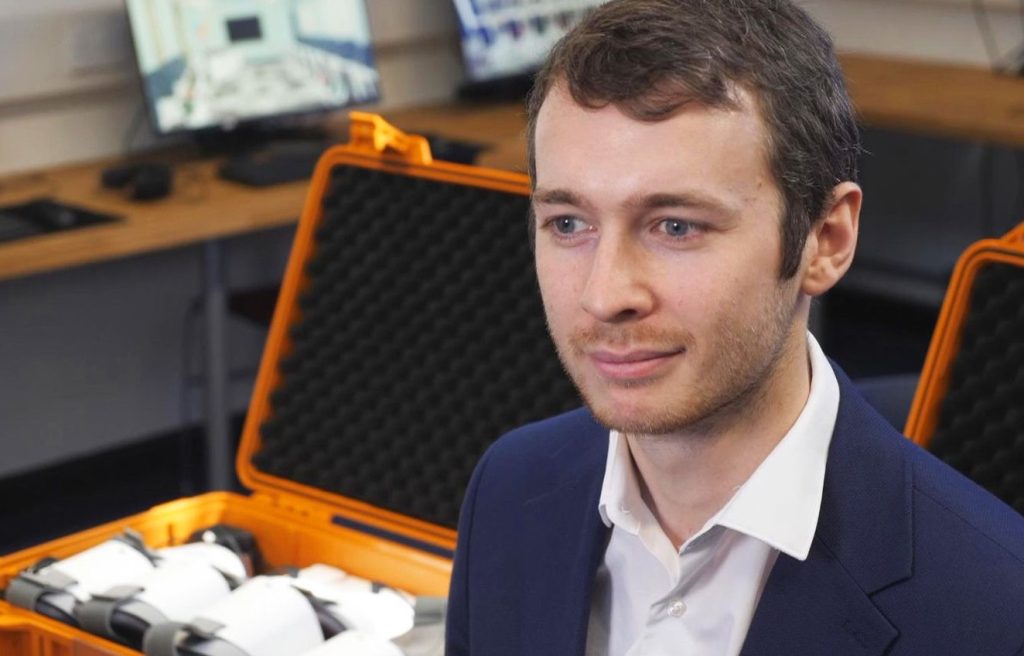In a groundbreaking development for education in the United Kingdom, a private school in London is preparing to launch the country’s first classroom taught entirely by artificial intelligence, without human teachers. David Game College, a prestigious private institution, will open its innovative “teacherless” course for 20 GCSE students this September, marking a significant shift in educational approaches.
The AI-powered classroom utilizes advanced technology to deliver a highly personalized learning experience. Students will interact with sophisticated AI platforms through computers and virtual reality headsets, creating an immersive educational environment. John Dalton, the school’s co-principal, explains the system’s capabilities:
“The platforms learn what the student excels in and what they need more help with, and then adapt their lesson plans for the term. Strong topics are moved to the end of term so they can be revised, while weak topics will be tackled more immediately, and each student’s lesson plan is bespoke to them.”

Dalton argues that this AI-driven approach offers a level of precision and continuous evaluation that surpasses human capabilities:
“There are many excellent teachers out there but we’re all fallible. I think it’s very difficult to achieve [AI’s] level of precision and accuracy, and also that continuous evaluation. Ultimately, if you really want to know exactly why a child is not learning, I think the AI systems can pinpoint that more effectively.”
The cost for this cutting-edge education is substantial, with students paying around £27,000 per year. However, proponents argue that the personalized attention justifies the price. Joseph, a GCSE student at David Game College who has been testing the system, shares his perspective:
“A teacher doesn’t really know your flaws because he has so many students. So he doesn’t know your flaws while the AI will figure out what your flaws are and help you improve.”
While the classroom is described as “teacherless,” human presence is not entirely eliminated. Three “learning coaches” will be present to monitor behavior, provide support, and teach subjects that AI currently struggles with, such as art and sex education. Alexander Vansittart, a former Latin teacher who has joined the college as a learning coach, expresses his enthusiasm:
“I got really excited about what this could do for young people, how it could help them change their lives. That’s why I applied for the job; because I believe this will change lives.”
The school has named this innovative program “Sabrewing,” after the agile hummingbirds known for their independent navigation skills. According to the school, these birds “excel in navigating their environments independently and tend to fly solo even when migrating over great distances, as opposed to travelling as a flock,” drawing a parallel to the individualized learning experience offered by the AI classroom.
However, the idea of entrusting children’s education to artificial intelligence has sparked controversy. Chris McGovern, a retired head teacher and former advisor to the policy unit at 10 Downing Street who now runs the Campaign for Real Education, voices his concerns:

“I understand why [schools] may push AI. For one thing, it’s cheaper,” he states, although David Game College denies this, claiming they have actually hired more personnel to run the course.
McGovern continues, “The problem with AI and the computer screen is that it is a machine and it’s inert, so you’re straight away dehumanising the process of learning, taking away those interpersonal skills and the interaction between pupils and teacher. It’s a soulless, bleak future if it’s going to be along the AI path only.”
Despite these concerns, the integration of AI in education is gaining traction across the UK. The government recently announced a new project to help teachers use AI more effectively in their classrooms. This initiative involves creating a bank of anonymized lesson plans and curriculums to train various educational AI models, which will then assist teachers in marking homework and planning classes.
Stephen Morgan, Minister for Early Education, comments on this development:
“Artificial Intelligence, when made safe and reliable, represents an exciting opportunity to give our schools’ leaders and teachers a helping hand with classroom life.”
The introduction of AI-driven classrooms raises important questions about the future of education. While it offers unprecedented levels of personalization and adaptive learning, critics worry about the loss of human interaction and the development of crucial interpersonal skills. The success or failure of David Game College’s experiment could have far-reaching implications for how education is delivered in the UK and beyond.
As this pioneering classroom prepares to open its virtual doors, educators, policymakers, and parents will be watching closely. Will this AI-driven approach revolutionize education, offering a level of personalized learning never before possible? Or will it prove that the human element in teaching is irreplaceable?

The answers to these questions will unfold as the first cohort of students embarks on this unique educational journey. Regardless of the outcome, the launch of the UK’s first AI-driven classroom marks a significant milestone in the ongoing debate about the role of technology in education. As AI continues to advance, finding the right balance between technological innovation and human interaction in the classroom will likely remain a central challenge for educators and policymakers in the years to come.
Copyright©dhaka.ai
tags: Artificial Intelligence, Ai, Dhaka Ai, Ai In Bangladesh, Ai In Dhaka, Future of AI, Artificial Intelligence in Bangladesh, Uk



